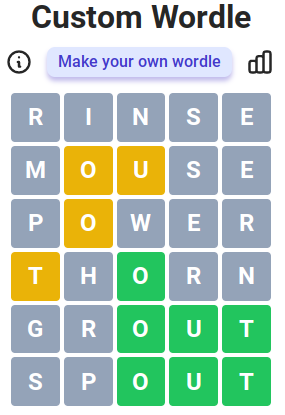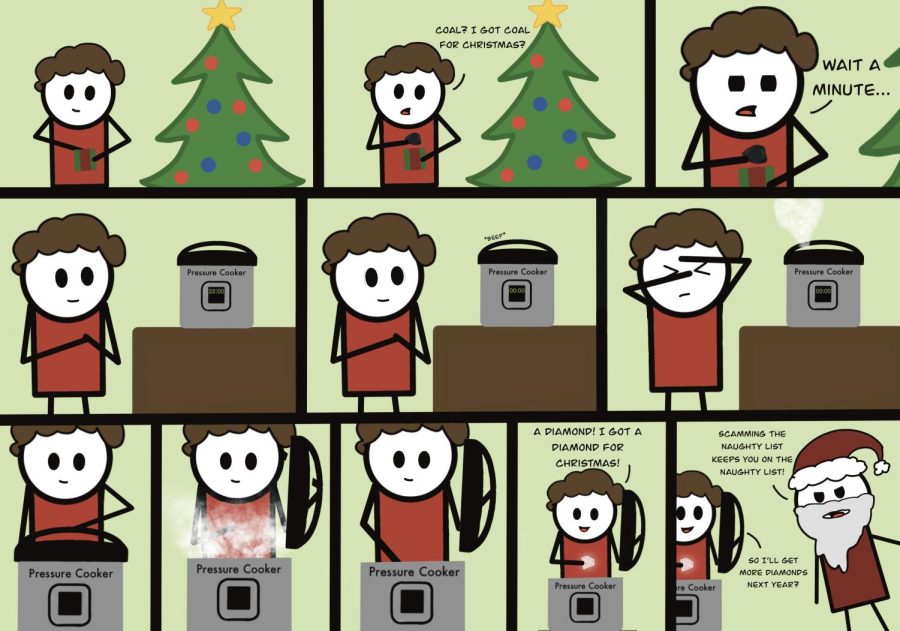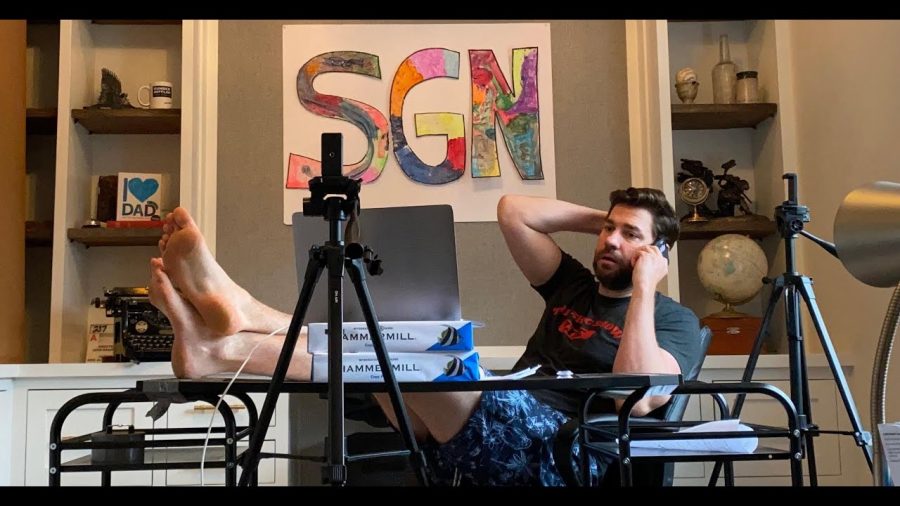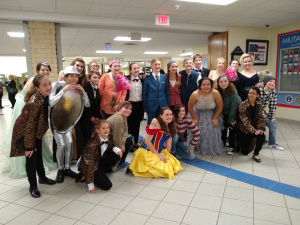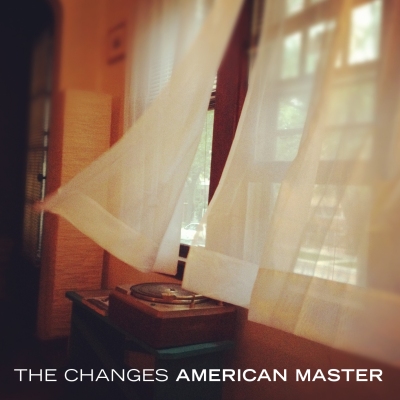
American Master by The Changes

Combining the mellow jangle of ‘90s Brit-pop revivalists and the breezy harmonies of early-1970s Beach Boys, Chicago indie rockers The Changes are nothing short of refreshing.
Not widely known except within the Windy City electropop scene, this band is a force to be reckoned with, despite having only released a handful of albums and EP’s. Their newest full-length record, American Master, is their first release in six years. Without a doubt, it is also their most interesting release to date.
One listen to album-opener “A Mystery,” a cerebral and abstract number with a slight techno infusion, indicates a promising listening experience ahead — a listening experience which only improves as the record plays on. “Bones” is a standout cut from American Master, featuring a remarkable rhythm guitar section and an airy falsetto from frontman Darren Spitzer which gives the track the feel of ‘70s folk-rockers America.
Despite the breezy vibe characteristic of many of their songs, The Changes have a remarkable knack for writing thoughtful, if not occasionally claustrophobic, lyrics. This can be heard especially on tracks such as “No One Wants to Be Alone” and “Mask,” which disguise relatively dark and menacing lyrics in ethereal power pop.
“Logan Square,” “Gas Station Girl,” and “Stays in Your Heart” are all mentionable numbers which showcase the quintessential warm nostalgia of The Changes. It is almost as though this four-man outfit engineers its songs specifically for road trips and thoughtful walks. The group’s sentimental lyrics and (generally) cheery sounds may appear naive to more cynical audience members, but the innocence of The Changes is endearing and easily forgivable.
Album-closer “Never Blue,” a sapid tune featuring tambourine (to add to the nostalgia), exemplifies the charming naiveté of The Changes. Caught in limbo between the sounds of Gerry Beckley (America) and Lou Reed, frontman Spitzer croons his well-crafted lyrics with a slight post-rock infusion.
Overall, American Master is much lighter and definitively more refined than The Changes’ earlier releases. This unpretentious collection of neo-psychedelic and jangle-pop numbers is a welcomed departure from the pessimistic tendencies of The Changes’ contemporaries.
Emotionalism by The Avett Brothers

Punky American folk musicians The Avett Brothers, hailing from North Carolina, were out to inspire upon the release of their 2007 LP Emotionalism. Despite the release of three subsequent albums, Emotionalism remains one of the most intimate and animated of all of The Avett Brothers’ works. Drawing from indie-folk and Americana roots-rock influences, this album is a tour-de-force sure to impress audience members.
It’s true that Emotionalism begins rather unremarkably; “Die Die Die” and “Shame,” the first two tracks on the album, are abrasive numbers less commendable than most of the band’s catalogue.
It is with “Paranoia in B Major” that Emotionalism picks up momentum. With its neurotic lead vocals and remarkable chord progressions, it sounds just as the title suggests. “I’m so tired of being wrong,” laments the doubt-ridden Scott Avett. From the listener’s perspective, however, not much can be heard that is wrong with Emotionalism.
Isolation is the main theme of tracks such as “The Weight of Lies,” which evokes terrific imagery within the audience member (“lies don’t need an aeroplane to chase you anywhere”), and “The Ballad of Love and Hate,” which reveals an incredible knack for storytelling on the part of its songwriters.
“Will You Return” is a rock-driven catharsis and one of Emotionalism’s highlights, and features the sound of The Avett Brothers stuck halfway between a less-grungy Ramones and the indie-folk tendencies of contemporaries like The Lumineers.
Emotionalism features some unfortunately unmemorable tracks, including “Salina” and “Pretty Girl from Chile,” which seem almost unworthy of mention when overshadowed by the theatrical and sentimental “All My Mistakes” or the haunting, bouncy banjo tune “I Would Be Sad.” The true highlights of this record are the deep cuts which can be detected by the patient audience member.
Overwhelmingly, Emotionalism teaches listeners about love, whether it be painful or joyous, melancholic or effervescent. And although most of the record’s tracks seem to address the heartbreak and happiness which accompanies love, they are never uninspiring or trite. While Emotionalism might not be The Avett Brothers’ magnum opus just yet, it is certainly one of the finer moments in the history of the group.















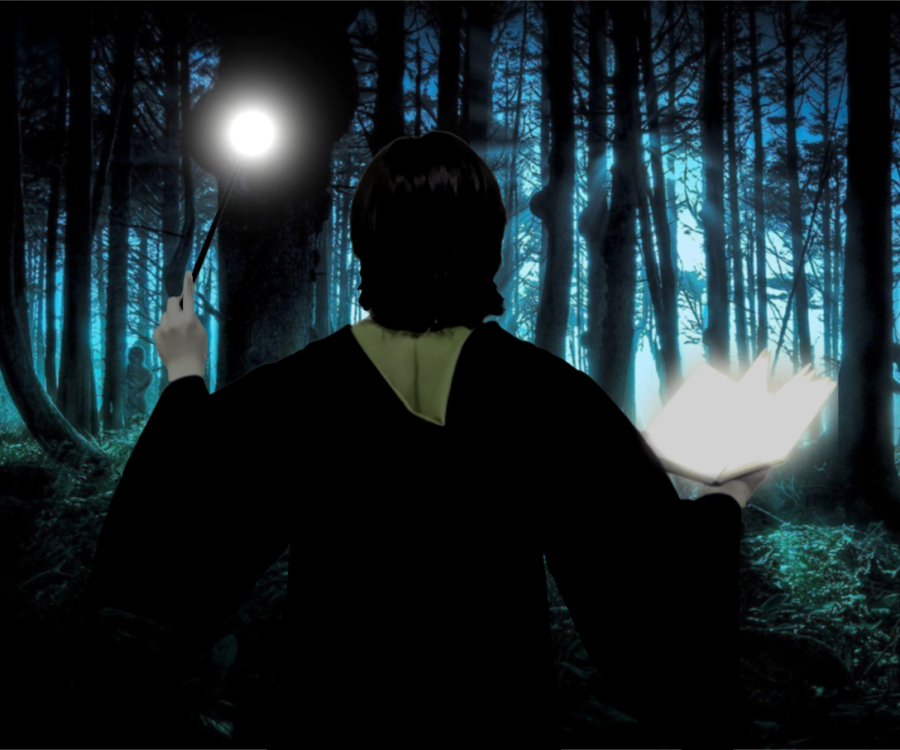











![During the holiday season, it can be tiring to hear the same Christmas songs all the time. These non-traditional tunes hope to cure some of the holiday monotony. [Photo Credit: Mallory Green]](https://khsknighttimes.com/wp-content/uploads/2023/12/greenfeatureimage-1200x680.jpg)

